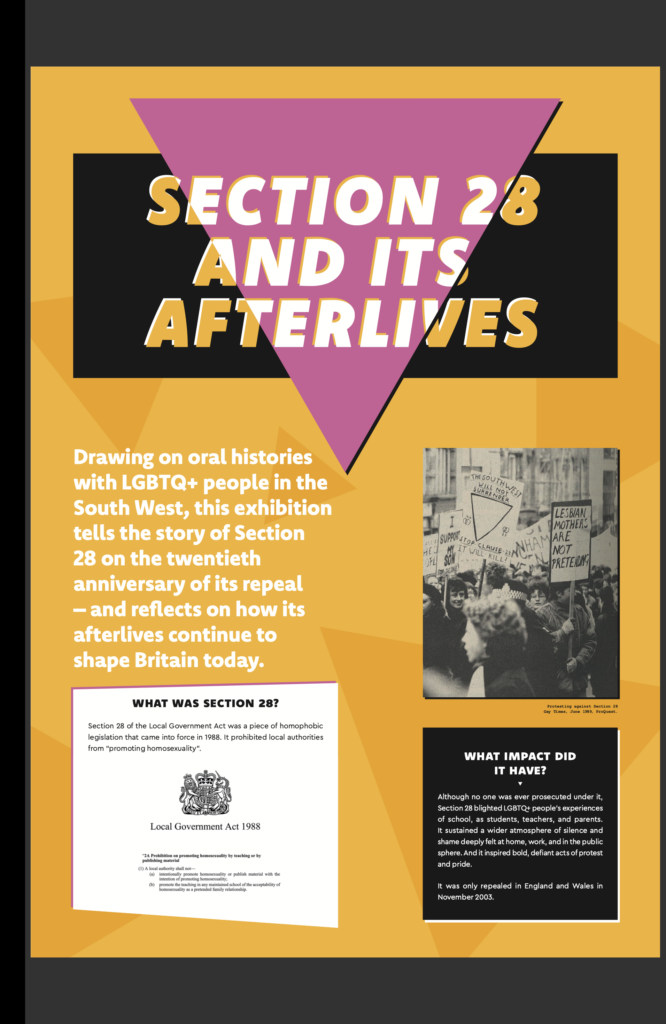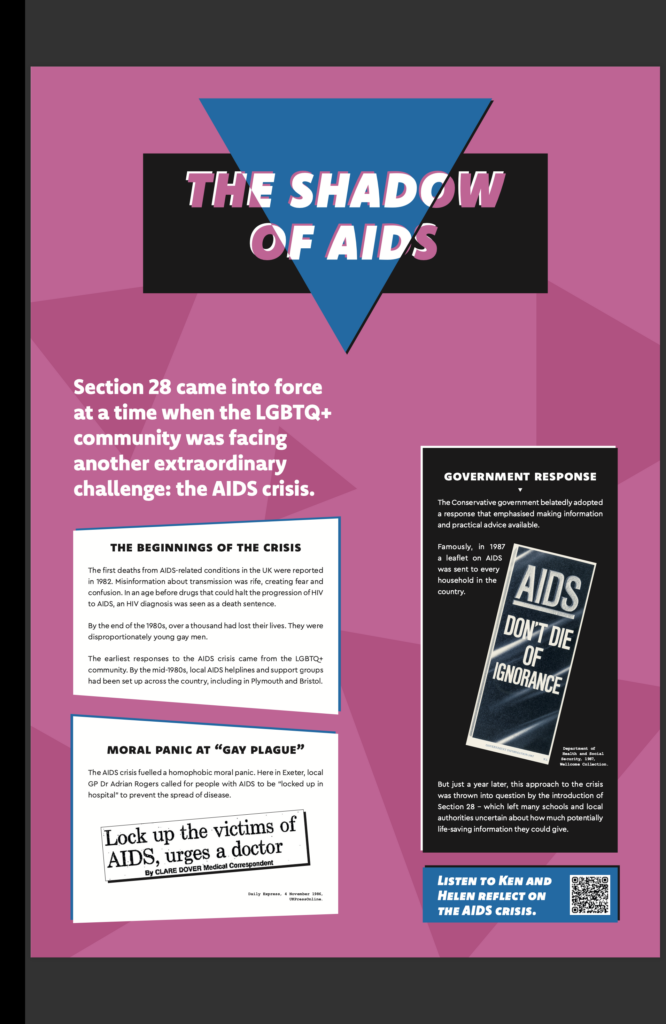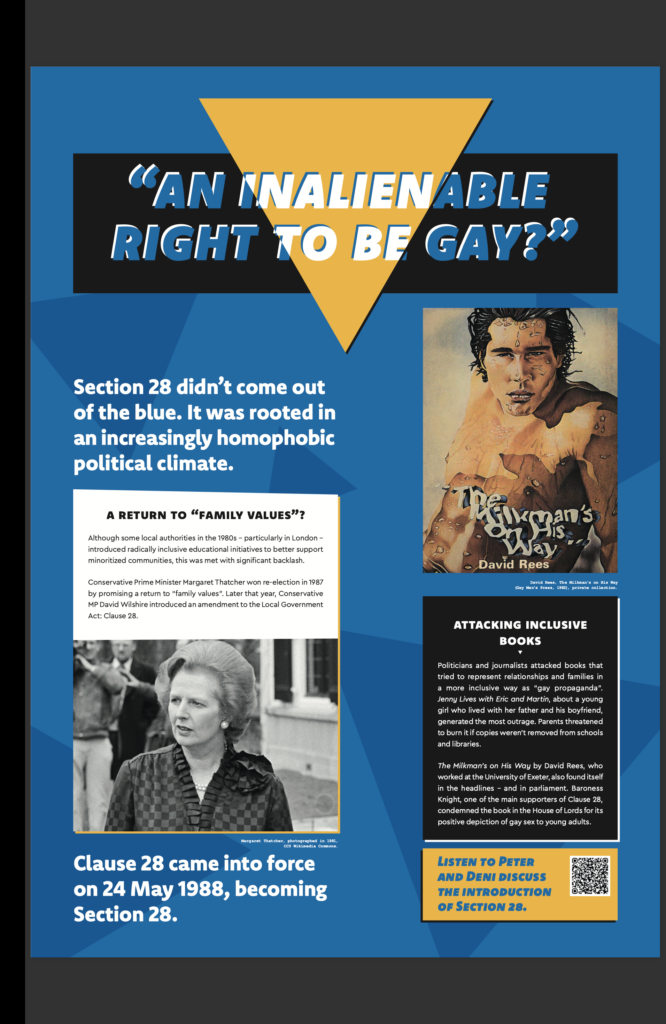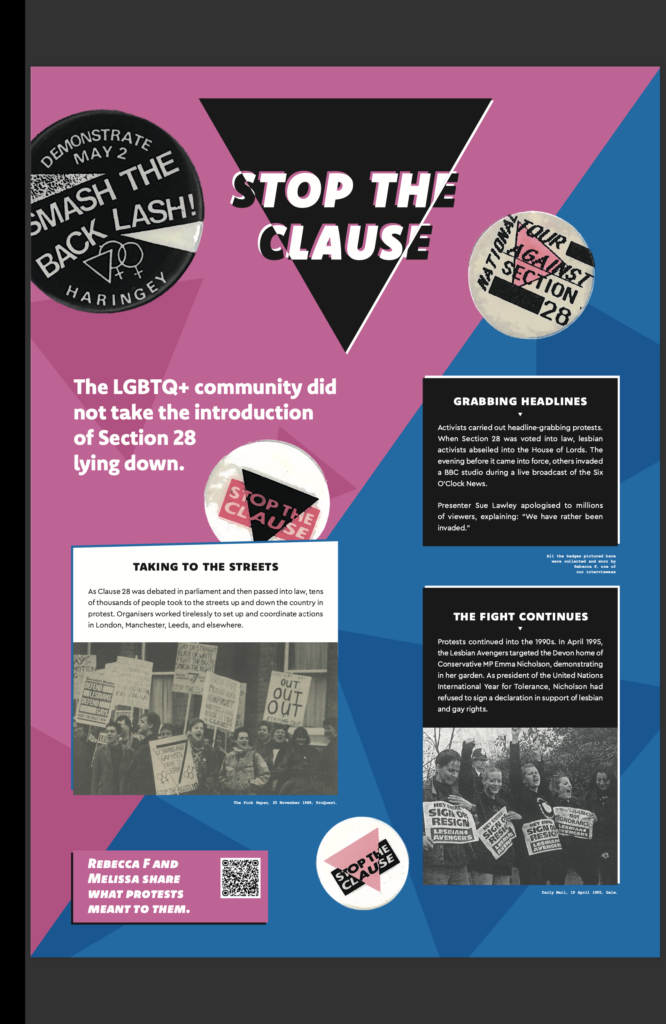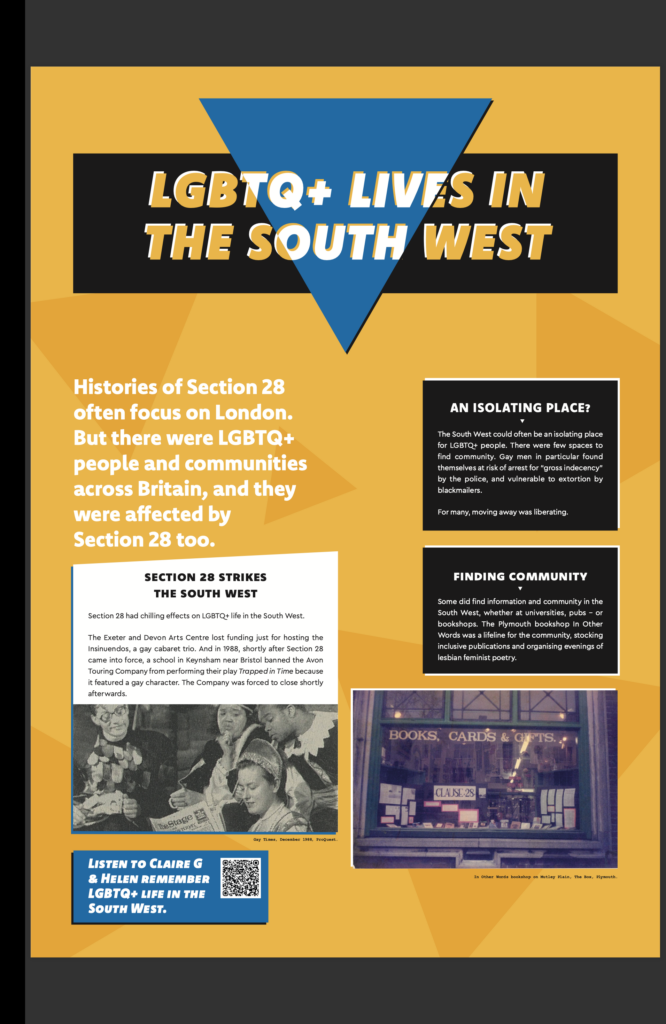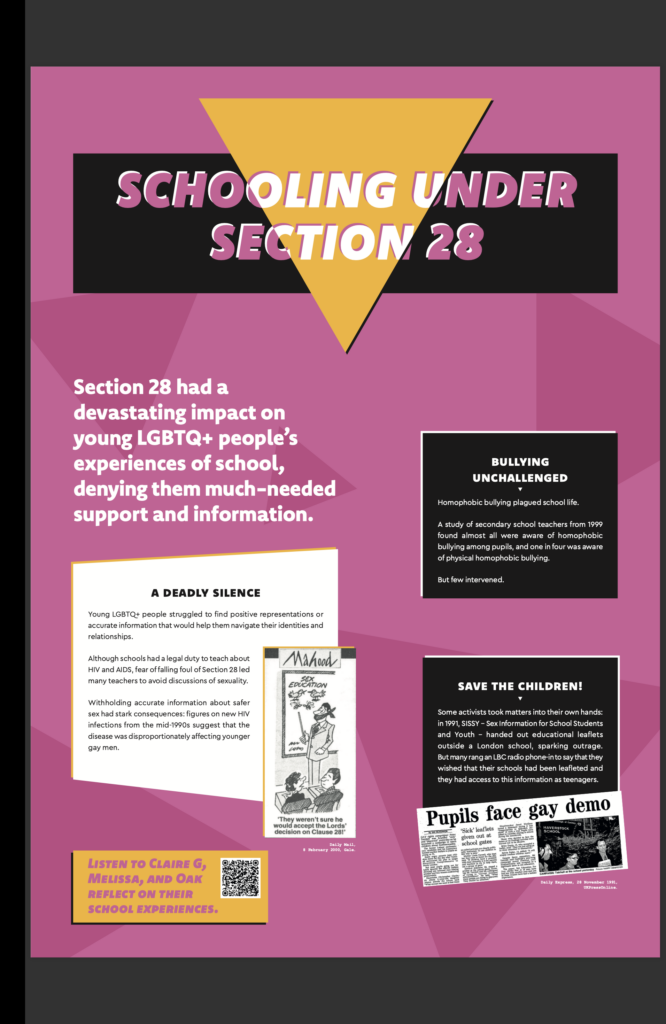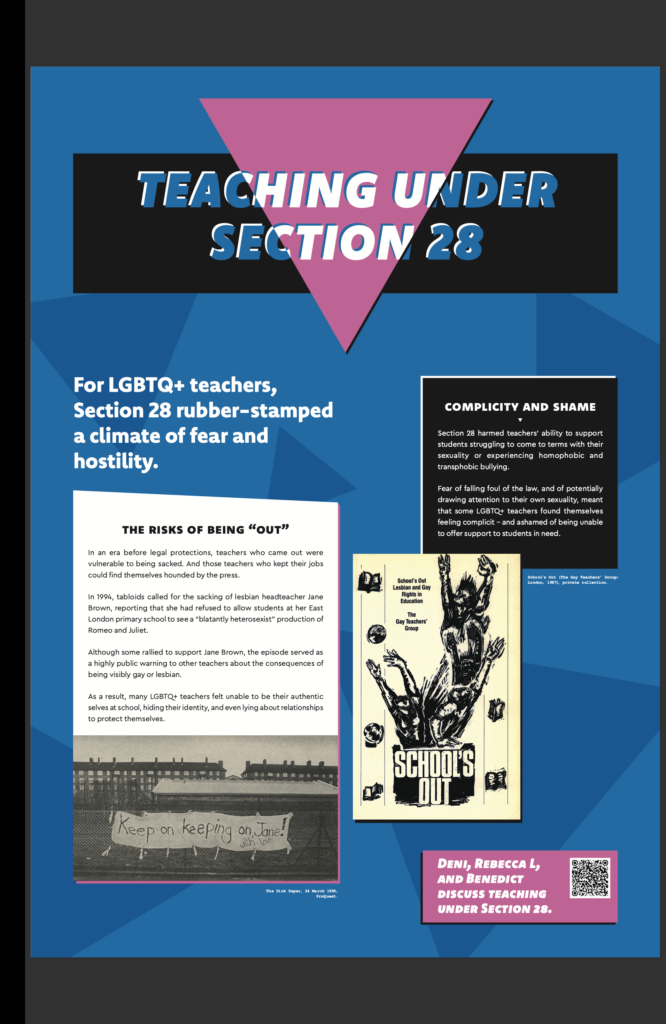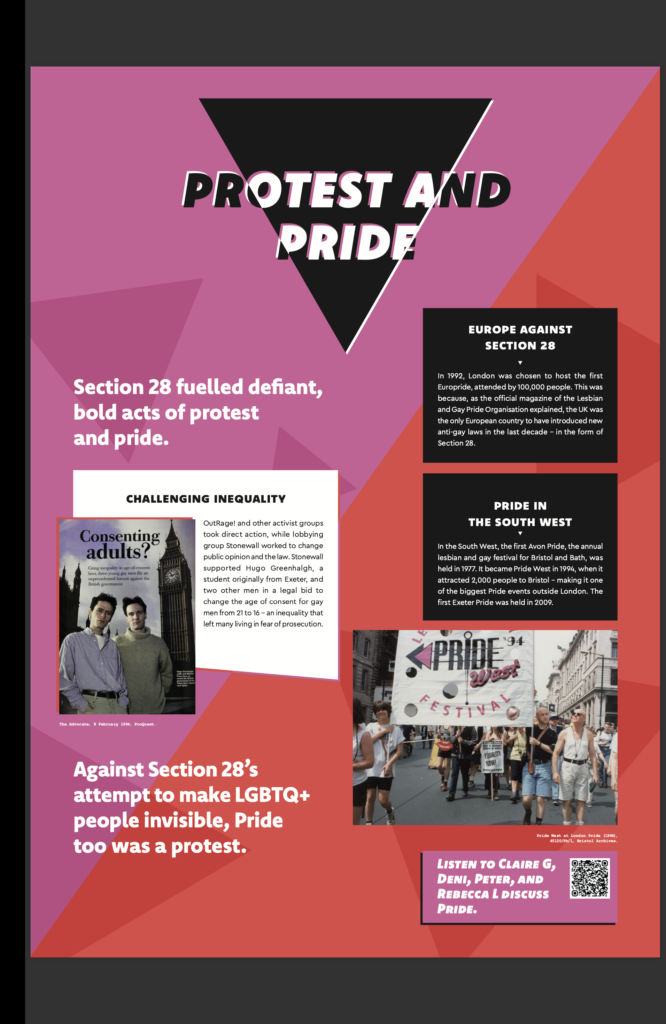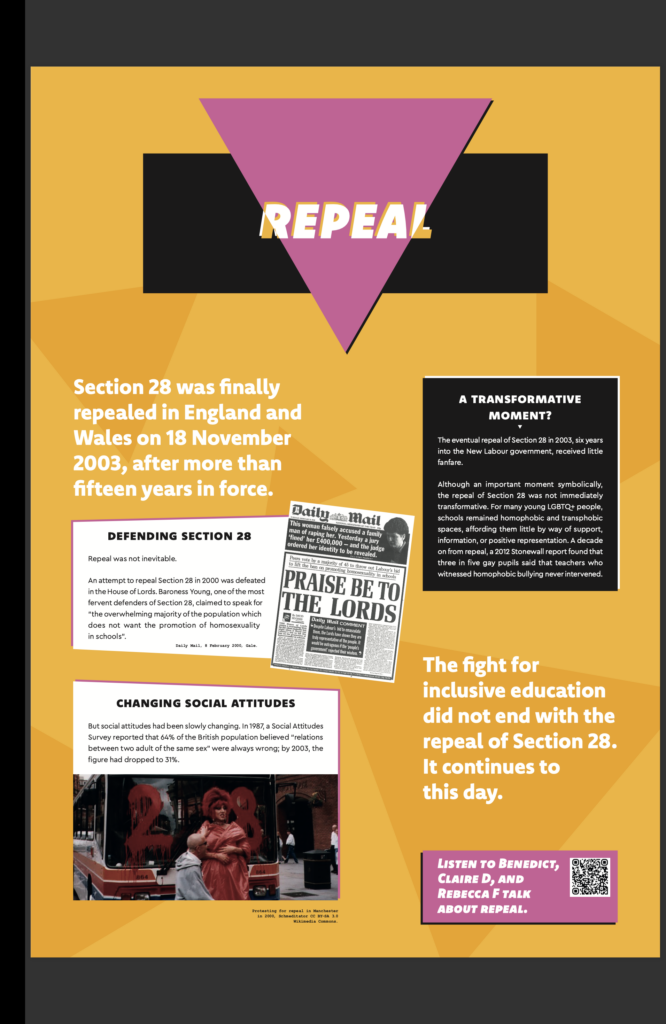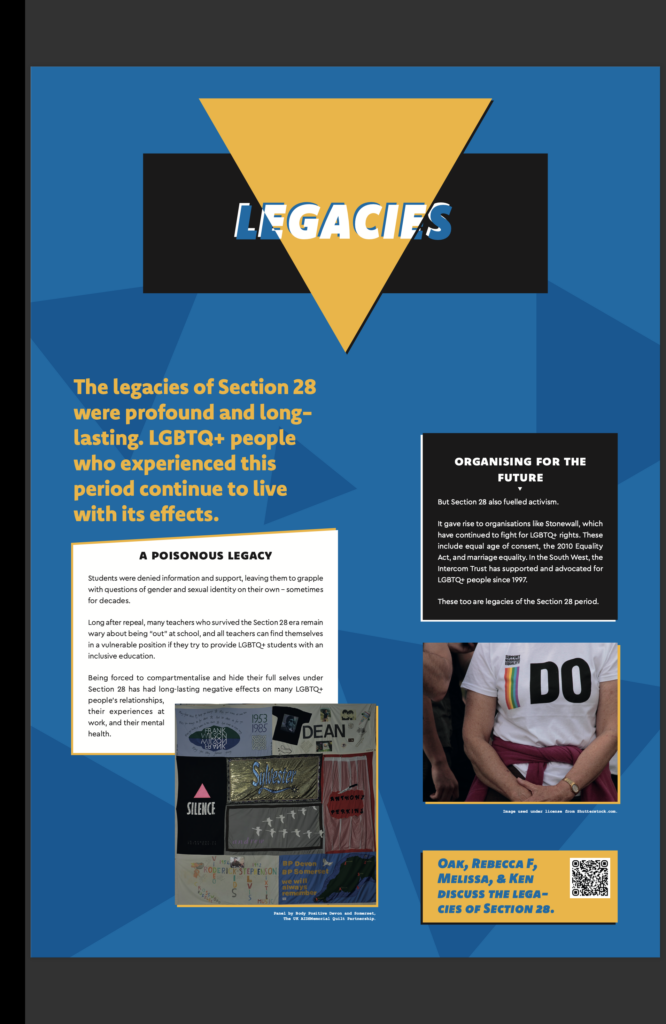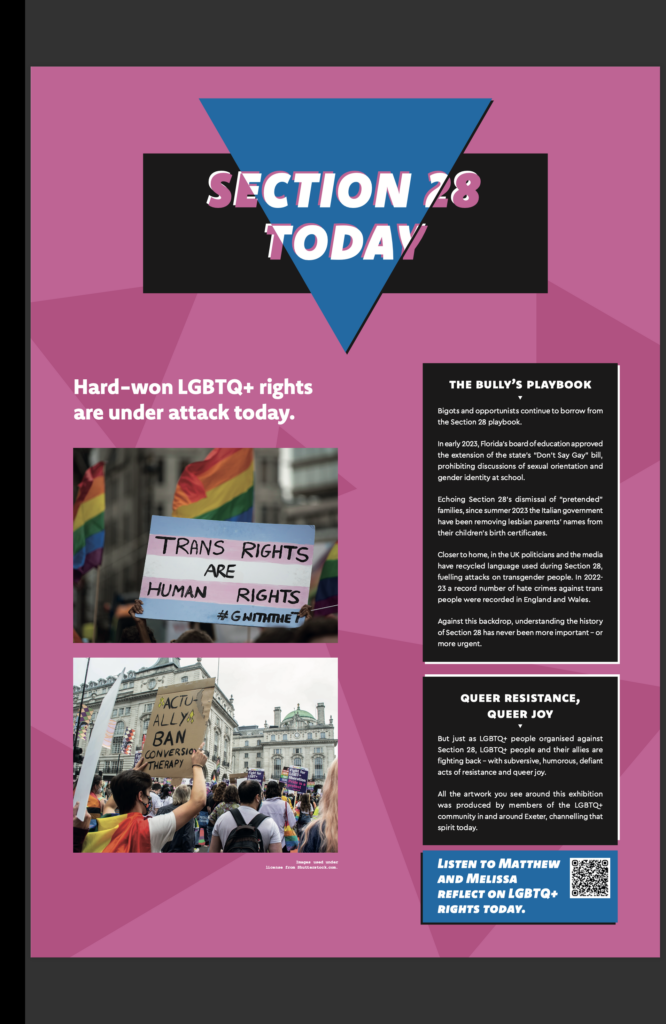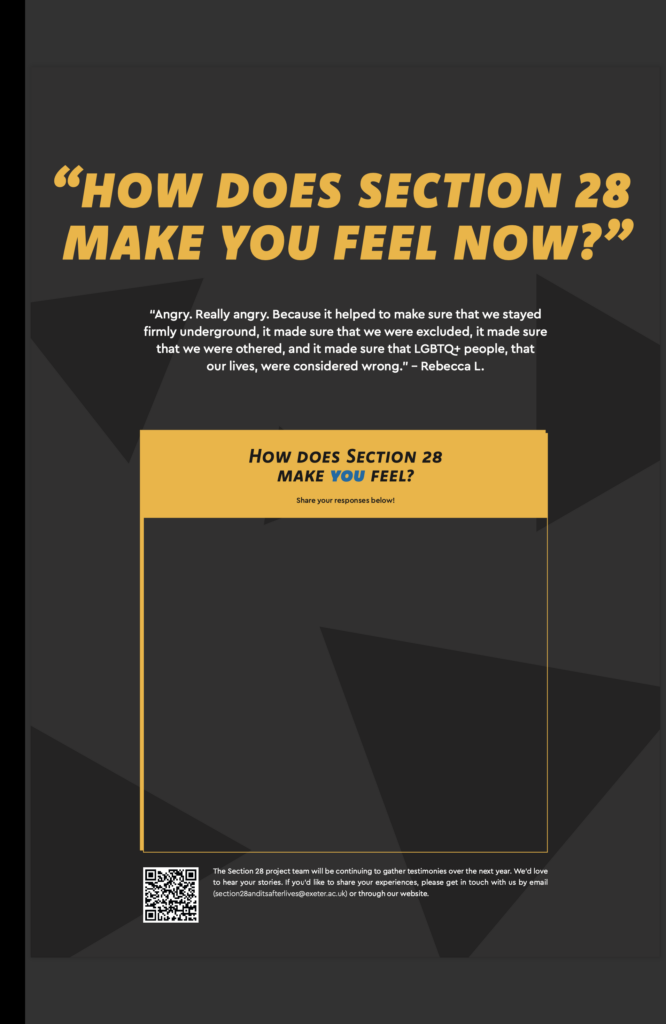Drawing on oral history interviews conducted with LGBTQ+ people in the South West, we’ve put together an exhibition on Section 28 and its afterlives. This launched in November 2023 to mark the 20th anniversary of the repeal of Section 28, and has been on the move ever since. It’s been seen by hundreds of people, and we hope it will continue to be seen by many more across 2024, raising awareness of the pernicious effects of this homophobic piece of legislation at a time when we sadly see frighteningly similar attacks on LGBTQ+ all around us today. If you’d like to host the exhibition, please let us know – we are happy to loan it out, free of charge.
The exhibition uses QR codes to integrate recordings and transcripts of excerpts from the oral history interviews. You can find all of the recordings and transcripts used in the exhibition in the pages in this section: each page relates to a different panel from the exhibition.
In transcribing the oral history interviews, we’ve tried to strike a balance between capturing the naturalness of the conversation – the pauses, repetitions, breaks – and ensuring that they are readable by tidying them up a little at points.
You can find previews of each of the exhibition panels below, and can click through to the linked audio recordings and transcripts.
